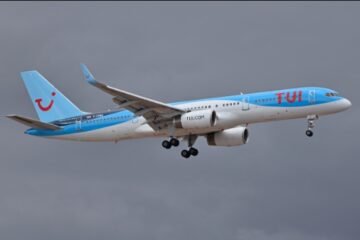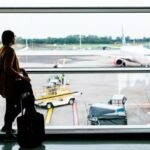Backpacking Across the Globe: Essential Tips and Tricks is a guide for those seeking to explore the world one step at a time. This guide provides invaluable advice on preparing for such a journey, from learning the basics of packing to preparing for the unexpected. Whether you’re a seasoned traveler or just starting out, this guide provides essential tips and tricks that will help you make the most of your journey.
Backpacking across the globe is an adventure like no other. You get to see some of the most incredible places on Earth, meet incredible people, and experience a variety of cultures. You will also get to challenge yourself in ways you never thought possible. It can be an incredibly rewarding experience, both physically and mentally. It will also give you a greater appreciation for the world around you and will help you gain a new perspective on life.
If you’re looking for a way to truly immerse yourself in the world, backpacking across the globe is the perfect way to do it. With the right preparation and knowledge, you can make the most of your journey and have a truly unforgettable experience. With the help of this guide, you’ll be able to get the most out of your backpacking journey. So, if you’re ready to embark on the adventure of a lifetime, then this guide is the perfect place to start.
Planning your trip
a. Choosing a destination: When you are planning a trip, the first and foremost thing you need to decide is the destination. It is important to consider factors like budget, time availability, purpose of travel, distance, weather, and season while choosing the destination. You should also research about the destination to determine if it has the right attractions, restaurants and other activities that would make your trip enjoyable.
b. Budgeting: Once you have finalized the destination, the next step is to set a budget for your trip. It is important to keep the budget realistic, and you should consider the cost of airfare, lodging, transportation, food, activities, and other expenses. You should also plan for any contingencies and emergency expenses.
c. Preparing a itinerary: After setting the budget, you need to prepare an itinerary for your trip. This includes making reservations for flights, hotels, car rentals, and activities. You should also determine the best route to your destination and plan for any sightseeing stops during your trip.
d. Getting travel visas and insurance: You should also apply for a visa if needed and purchase travel insurance. Travel insurance is recommended to protect you from any unforeseen expenses or losses due to cancellations, accidents, or medical emergencies. It is important to read the fine print of the policy to understand the extent of coverage.

Packing essentials
a. Backpack and luggage
Backpacks and luggages are among the most essential items for a successful journey. Backpacks come in various shapes and sizes, depending on the type of travel and the duration. Luggage also comes in a variety of shapes and sizes, however, it is often best to choose one that is both lightweight and durable. It is also important to consider the amount of storage when selecting a backpack or luggage.
b. Clothing
Clothing should be chosen based on the type of travel and the climate of the destination. It is important to pack clothes that are versatile, comfortable and lightweight. Additionally, it is important to pack items that can be layered in order to accommodate changing temperatures. For example, packing scarves, sweaters and jackets can help to keep warm in colder climates.
c. Footwear
Packing the right kind of footwear is key for any journey. It is important to choose shoes that are comfortable, lightweight and fit well. Depending on the type of travel, it may also be necessary to pack additional footwear, such as sandals or rain boots. Additionally, packing an extra pair of socks is always a good idea.
d. Toiletries and first aid kit
Toiletries and a first aid kit are essential items for any journey. When packing toiletries, it is important to include items such as shampoo, conditioner, toothbrush, toothpaste, deodorant, and any other items that may be necessary. Additionally, it is important to pack a first aid kit that includes items such as bandages, antiseptic wipes, and over the counter medications.
e. Technology and communication devices
Technology and communication devices are essential for any journey. Depending on the type of travel, it may be necessary to pack items such as a laptop, tablet, smartphone, and/or camera. Additionally, it is important to pack necessary chargers and cables for all devices. Additionally, for longer trips, it may be necessary to pack a travel adapter in order to use electrical devices in other countries.
Staying safe and healthy on the road:
Keeping Your Valuables Secure
When traveling, it is important to take steps to protect your valuables. It is best to keep your belongings with you at all times, whether it is in a safe or a locker in your hotel room. It is also a good idea to hide your valuables in a secret pocket or pouch of your clothing. If you are carrying a bag, make sure it is closed and secure at all times. You should also avoid carrying large amounts of cash. If you must carry cash, it is best to split it up and store it in multiple locations. It is also a good idea to make copies of important documents such as your passport and credit cards in case of theft.
Coping with Jet Lag
Jet lag can be difficult to deal with when traveling long distances. One of the best ways to cope with jet lag is to adjust your sleeping schedule to the new time zone as soon as possible. You can also try to stay hydrated and avoid alcohol, caffeine, and large meals while on the plane. Additionally, it is important to get plenty of rest and exercise during your trip. If possible, try to get out in the sunlight and adjust your internal clock to the new time zone.
Staying Safe in Unfamiliar Places
Traveling to unfamiliar places can be exciting, but it is important to take precautions to stay safe. One of the best ways to protect yourself is to stay aware of your surroundings. It is also a good idea to avoid walking alone at night and to stay in well-lit and populated areas. If possible, try to find out the local laws and customs so that you are familiar with what is expected. Additionally, it is important to know where the local embassies are in case you need assistance.
Maintaining Hygiene
Maintaining good hygiene is essential when traveling. One of the best ways to stay clean is to carry around a small travel-sized hygiene kit. This should include items such as hand sanitizer, wipes, and any necessary medications. It is also important to practice good hand-washing techniques and avoid touching your face. Additionally, it is important to stay hydrated and to avoid eating food that may be contaminated.
Finding affordable accommodation:
Hostels
Hostels are an excellent option for those looking for an affordable place to stay while traveling. They offer a safe, clean and social environment and are usually located near attractions. Hostels also offer a range of services such as laundry, kitchen facilities, internet access and more. Benefits of staying in a hostel include:
• Low cost accommodation
• Free or low cost services
• Great for meeting other travelers and making friends
• Easy access to attractions
Tips for finding a good hostel:
• Look for reviews from other travelers online
• Check for safety and cleanliness ratings
• Make sure the hostel offers the services you need
• Look for discounts and special offers
Couchsurfing
Couchsurfing is a great way to find free accommodation while traveling. It is a website that connects travelers with hosts who offer a free place to stay. It is a great way to meet new people, learn about different cultures and save money. Benefits of couchsurfing include:
• Free accommodation
• Meet locals and learn about the culture
• Gain new insights and experiences
• Make new friends
Tips for finding a good couchsurfing host:
• Look for reviews from other travelers
• Check the host’s profile to make sure they have a good reputation
• Ask questions to make sure you feel comfortable with the host
• Meet up with the host before committing to stay with them
Home Stays
Home stays are a great way to experience a different culture and save money on accommodation. Home stays involve staying with a local family in their home. It is a great way to learn about the culture, customs and language of the country. Benefits of home stays include:
• Low cost accommodation
• Learn about the culture and customs
• Experience the local lifestyle
• Make new friends
Tips for finding a good home stay:
• Look for reviews from other travelers online
• Check for safety and cleanliness ratings
• Ask questions to make sure you feel comfortable with the family
• Look for discounts and special offers
Camping
Camping is a great way to experience nature and save money on accommodation. It is a perfect way to explore the outdoors and is suitable for all budgets. Camping is a great way to relax and enjoy the beauty of nature. Benefits of camping include:
• Low cost accommodation
• Great for exploring nature
• Perfect for budget travelers
• Great for getting away from it all
Tips for finding a good camping spot:
• Look for reviews from other travelers online
• Check for safety and cleanliness ratings
• Make sure the camping spot has the facilities you need
• Look for discounts and special offers
Navigating transportation:
Choosing the Right Mode of Transportation
Choosing the right mode of transportation is an important part of successfully navigating transportation. Depending on the situation, different modes of transportation like cars, buses, trains, bicycles, or walking can be the most efficient or cost-effective way to get from point A to point B. Factors to consider when selecting a mode of transportation include the distance to be traveled, time constraints, cost, environmental concerns, and the availability of the mode of transportation in the area.
Planning Your Route
Once you have chosen the mode of transportation you will use, you should plan your route carefully to ensure you arrive at your destination in the most efficient manner possible. For longer trips, it is recommended to use a mapping service or navigation app to plan the route and get an estimated travel time. For shorter trips, you may be able to plan the route yourself or use a note-taking app to map it out. Be sure to factor in any traffic, construction, or other delays that may occur during the journey.
Budgeting for Transportation Costs
When budgeting for transportation costs, it is important to consider all of the expenses associated with the mode of transportation you have chosen. This includes the cost of fuel or fares, maintenance, insurance, and parking fees. Additionally, it is important to factor in any additional costs associated with the mode of transportation, such as rental fees or transportation passes. By budgeting for all of these costs in advance, you can be sure that you have enough money to cover the entire cost of transportation.
Experiencing the local culture:
Eating Local Cuisine: Eating the local cuisine is one of the best ways to experience the culture of the area. Not only will you get to taste the local flavors, you will also get to learn about the ingredients that are used and the techniques that are employed in cooking the food. Depending on the area, you may also enjoy a variety of regional dishes from different parts of the country.
Participating in Local Activities and Events: Participating in local activities and events is a great way to observe and experience the local culture. Local activities and events range from festivals to sports tournaments and from art exhibitions to charity drives. Attending such events can offer an insight into the way of life of the locals, their values and beliefs, as well as their traditions and customs.
Meeting Locals: Meeting locals is another great way to experience the local culture. By talking to the locals, you can learn about their history, their beliefs and values, their customs and traditions, and the way of life in the area. You can also get to know about the best places to visit, the must-try dishes, and the interesting activities that are available in the area.
Benefits of Experiencing the Local Culture:
• Learn about the local culture and traditions
• Taste the local flavors
• Get to know the locals and their way of life
• Develop a better understanding of the area
• Make new friends and connections
Tips for Experiencing the Local Culture:
• Research about the local culture and its customs
• Try the local cuisine
• Participate in local activities and events
• Visit local attractions and landmarks
• Talk to the locals and ask them about their culture
Conclusion
Backpacking across the globe is an exciting and fulfilling experience. With the right mindset and a few essential tips and tricks, you can make the most out of your journey. The key to a successful backpacking trip is to plan ahead of time, pack light and stay organized. Research is also important to ensure that you know what to expect from each destination. It is also important to stay flexible and open to new experiences. Additionally, budgeting correctly and managing your finances is essential to avoid costly surprises. Finally, staying safe is always a priority and should be taken seriously.
Backpacking is an incredible way to explore the world and learn about different cultures. It can be a challenging experience, but it is also an incredibly rewarding one. Through backpacking, travelers can make lifelong memories and gain invaluable skills and knowledge.
We hope this guide has given you the information and confidence you need to embark on your own backpacking adventure. Whether you are a beginner or an experienced traveler, backpacking around the world is an experience that you will never forget. So, what are you waiting for? Start planning your next backpacking trip today!
FAQ
1. What is the best way to plan a backpacking trip?
The best way to plan a backpacking trip is to do your research! Research the locations you want to visit, the type of activities you would like to do, and the best routes to take. You should also consider the cost, the season, and the type of accommodation you would like.
2. What are the essential items to bring on a backpacking trip?
The essential items to bring on a backpacking trip include comfortable clothing, sturdy shoes, a backpack, a sleeping bag, a tent, a water bottle, a map, a first-aid kit, a flashlight, insect repellent, sunscreen, toiletries, and food.
3. What are the best destinations for backpacking?
The best destinations for backpacking depend on personal preference. Popular backpacking destinations include Southeast Asia, Central America, South America, Europe, Australia, and New Zealand.
4. How much money should I budget for a backpacking trip?
The amount of money you should budget for a backpacking trip depends on the length of your trip and the type of activities you plan to do. Generally, a budget of $50 to $100 per day is recommended for accommodation, food, and activities.
5. How can I stay safe while backpacking?
To stay safe while backpacking, it is important to research the places you are visiting, plan ahead, and follow safety advice from locals. It is also important to be aware of your surroundings, learn basic first-aid, and carry a cell phone with you.
6. What type of backpack should I use for backpacking?
The type of backpack you should use for backpacking depends on the duration of your trip and the amount of gear you need to bring. Generally, a backpack with a capacity of 40-60 liters is suitable for a short trip, while a backpack with a capacity of 70-90 liters is suitable for a longer trip.
7. What is the best way to save money while backpacking?
The best way to save money while backpacking is to research the cheapest accommodation and transportation options, take advantage of discounts and promotions, and bring your own food. Additionally, it is important to plan your route carefully and prioritize the activities that are most important to you.
8. What type of insurance should I get for a backpacking trip?
Before embarking on a backpacking trip, it is important to get comprehensive travel insurance that covers medical expenses, repatriation, and emergency evacuation. It is also important to check what is already covered by your existing insurance policies, such as health insurance.
9. What type of visas do I need for backpacking?
The type of visas you need for backpacking depend on the countries you are visiting. Generally, you will need tourist visas for short visits and work visas for longer stays. It is important to research visa requirements and apply for the necessary visas before your trip.
10. What are the most important tips for backpacking?
The most important tips for backpacking include researching the locations you are visiting, planning your route carefully, packing light, staying safe, and being flexible. Additionally, it is important to respect local customs and laws, use common sense, and be open to learning new things.


















